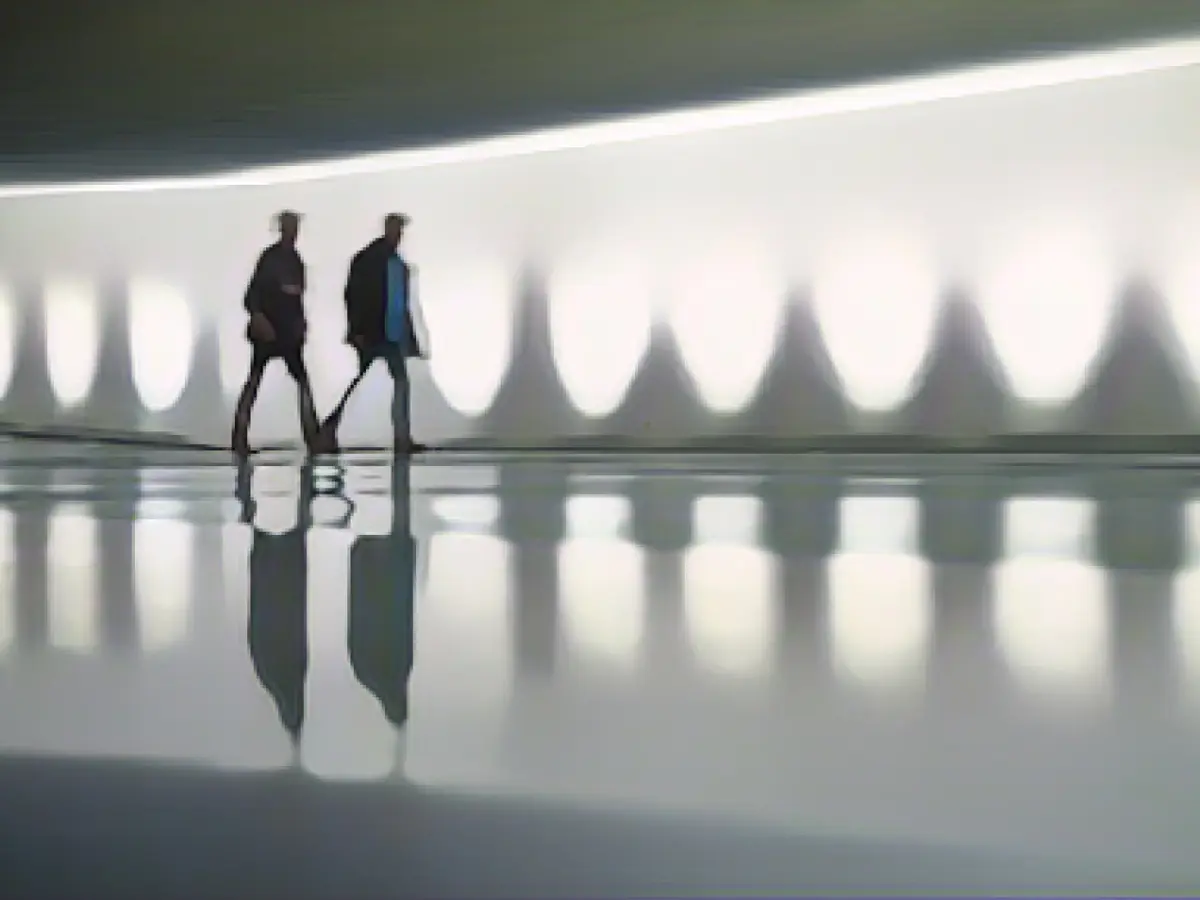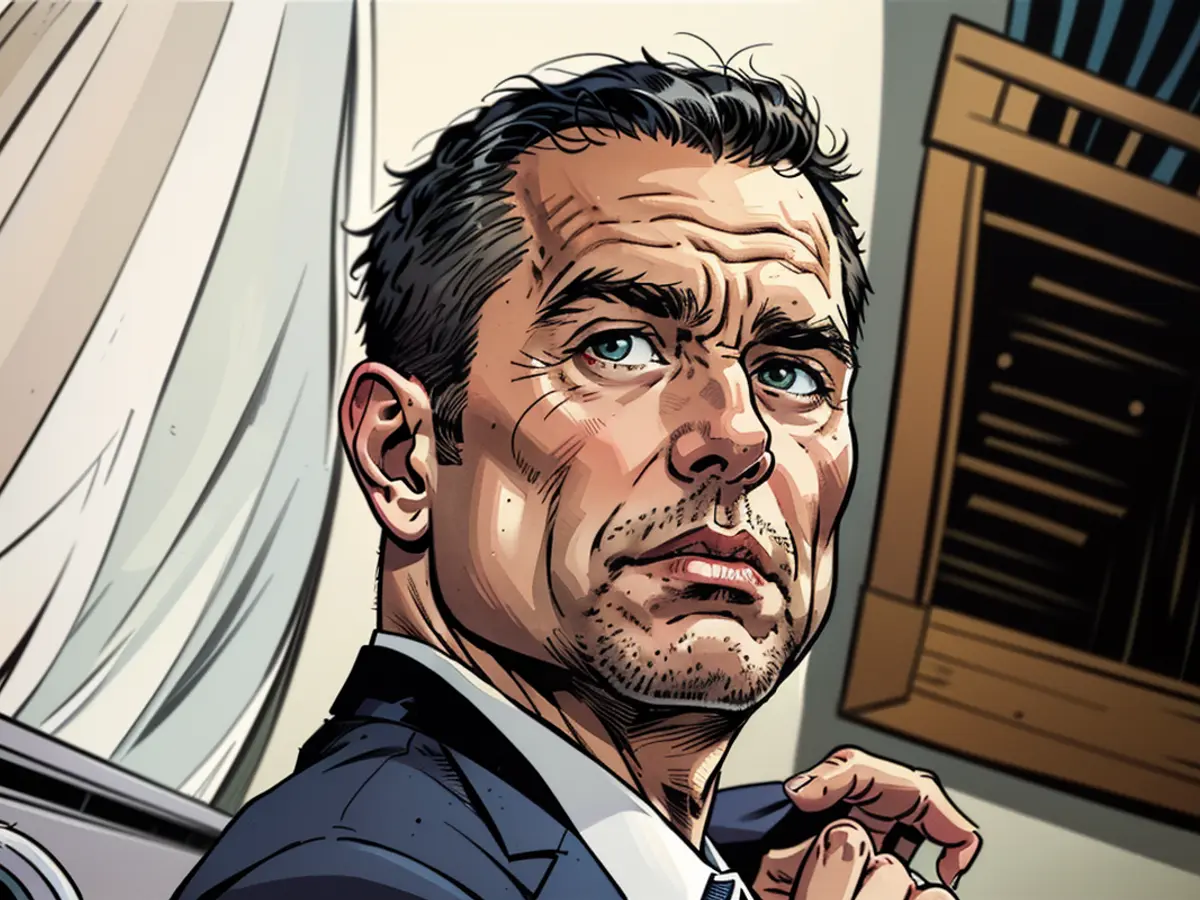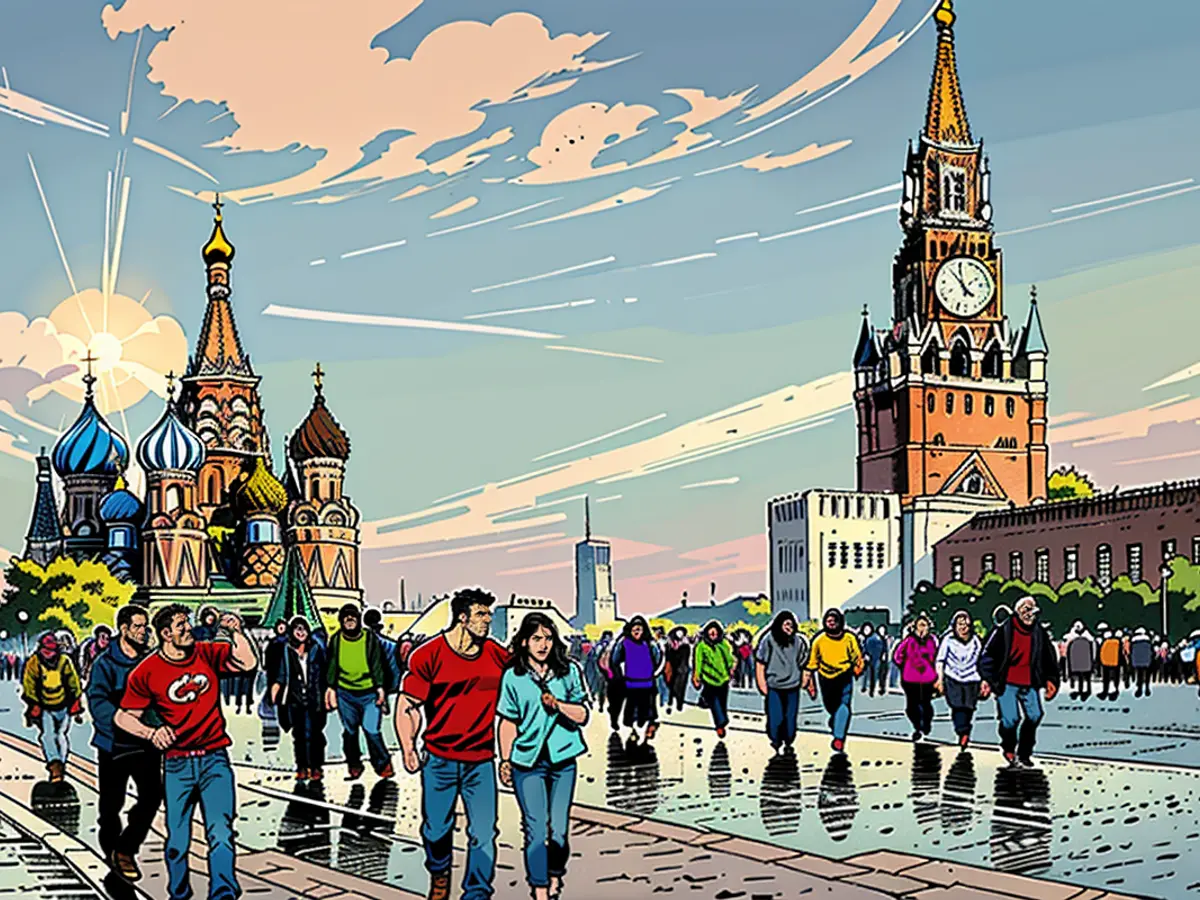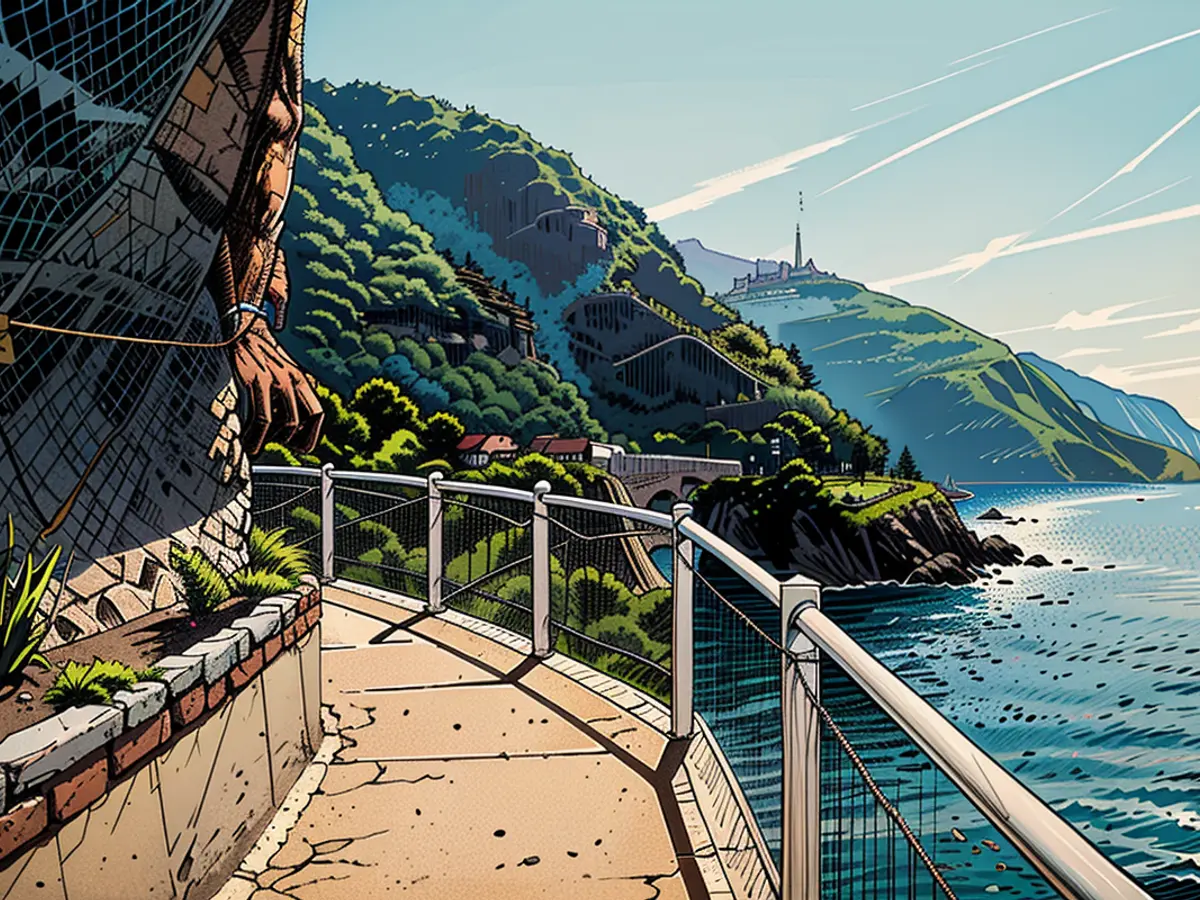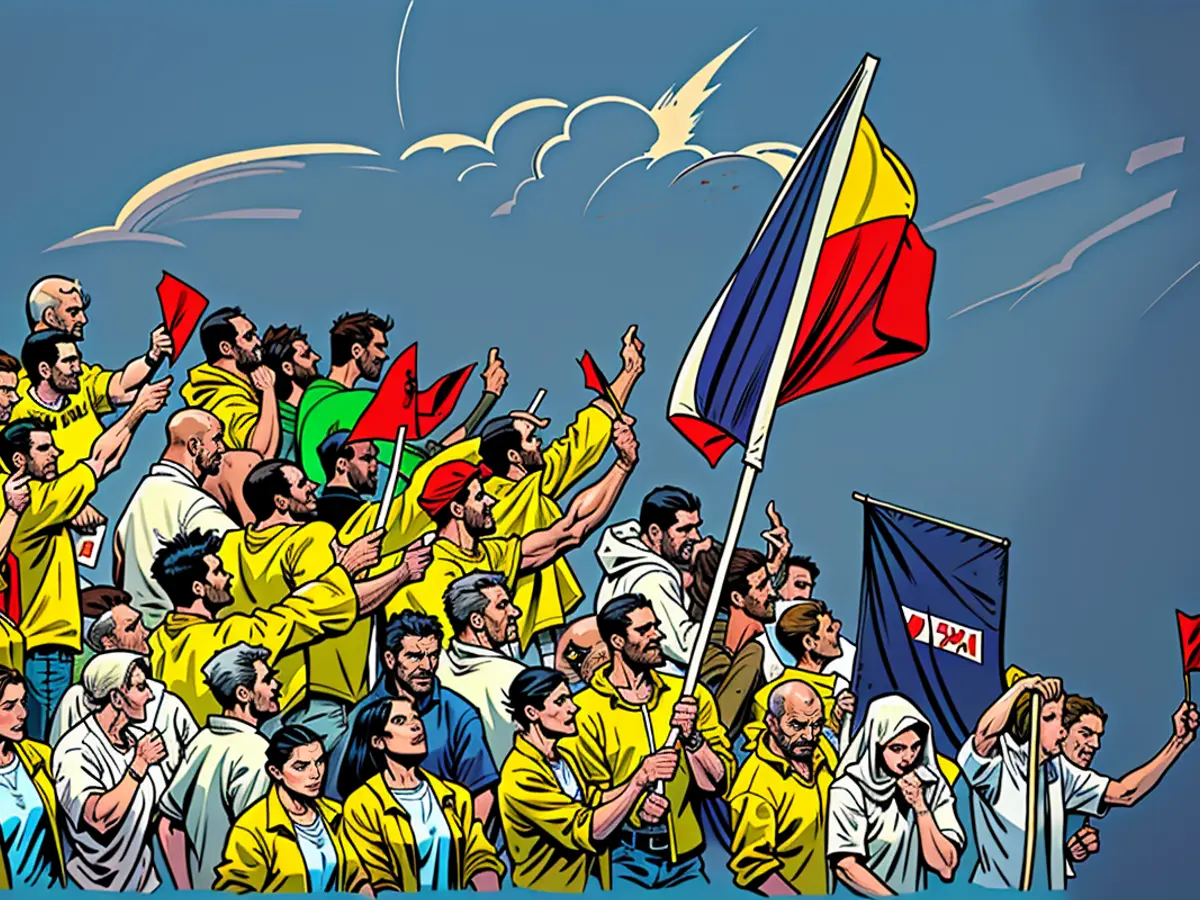Bundestag - SPD rules out budget resolution before the end of the year
It is another major setback for Chancellor Olaf Scholz and his federal government: it appears that they will not be able to get the budget for 2024 signed and sealed before the end of the year. The SPD parliamentary group leaders no longer believe that a Bundestag resolution is possible this year. "Although we have done everything we can on our side, the budget for 2024 can no longer be passed in time this year," wrote Katja Mast, Parliamentary Secretary of the largest coalition parliamentary group, in a text message to her parliamentary group coordinated with parliamentary group leader Rolf Mützenich.
The coalition government has thus missed a target that it set itself: "It would be nice, it would be a goal, it would be wonderful to achieve it this year," government spokesman Steffen Hebestreit said at the end of November. The CDU/CSU criticized Scholz for having lost control of his government. "From chemical companies and house builders to craftsmen and recipients of citizens' benefits: the uncertainty in the country is growing every day," said Jens Spahn, deputy leader of the CDU/CSU parliamentary group, in the Rheinische Post newspaper.
On the fringes of the EU finance ministers' meeting in Brussels, Finance Minister Christian Lindner hinted that the FDP had wanted to take more time. "I noticed that the coalition partners had very ambitious timetables," he said.
Ampel chief negotiators fail to find a solution
However, nothing works without a political agreement to solve the budget crisis. However, the chief negotiators Scholz (SPD), Vice Chancellor Robert Habeck (Greens) and Lindner (FDP) are still struggling to find a way to plug a 17 billion euro hole in the budget for 2024. The budget ruling by the Federal Constitutional Court was one of the reasons for this.
Germany's highest court had declared a reallocation in the budget null and void. As a result, 60 billion euros that had been budgeted over four years for climate protection projects and the modernization of the economy are missing. What will happen to this expenditure is still completely open. However, the judge's ruling also had an impact on other credit-financed special funds and thus, in a roundabout way, on the core budget.
The Bundestag should actually have passed the budget for 2024 last week. However, after the ruling, the traffic lights froze the process. Since then, Scholz, Lindner and Habeck have been discussing how to plug the billion-euro hole. The Chancellor is "confident that a result can be achieved in the coming days", Mast wrote in the text message, which was first reported by the Bild newspaper.
What could happen next
However, the political agreement would probably not be reached in time to pass through all parliamentary instances before Christmas. This is because the members of the Bundestag need time to discuss the proposals of the traffic light coalition. The opposition in particular is likely to insist on this. The Constitutional Court is backing them up here. It was only in the summer that the judges in Karlsruhe ruled that laws may not be rushed through parliament.
It could now come down to only the Bundestag's Budget Committee completing its deliberations before the end of the year. Following a political agreement, it would probably consult experts once again. Then the so-called adjustment session, in which the budget is basically finalized, would have to be concluded. In January, the Bundestag could then convene for the budget week and then the Bundesrat could give the green light.
Lindner: Late decision not a crisis
Until then, so-called provisional budget management would apply. For the time being, only expenditure that is necessary to maintain the administration and fulfill legal obligations is possible. In practice, however, the Ministry of Finance can authorize the ministries to use a percentage of the funds in the draft budget that has not yet been approved each month.
This procedure usually also applies after a federal election if the new government is unable to draw up a budget in the short time between forming a coalition and the turn of the year. For Lindner, a late decision is therefore no drama: "The state is fully capable of acting: no authorities will be closed. No salaries will not be paid. No one who expects support will not receive it," he emphasized.
Voices for a quick agreement not silenced
According to a spokesperson for the Green parliamentary group, it is important that a political agreement is reached very quickly in the dispute over the budget. If an agreement is reached, parliamentary deliberations could be continued as far as possible this year. "There are requirements for parliamentary procedures that we must and want to meet. Particularly with regard to sufficient consultation time for draft legislation. People, the economy and companies in this country need predictability and certainty."
SPD General Secretary Kevin Kühnert also continues to focus on a quick agreement - but not under any conditions. "Our aim is to reach a joint agreement before Christmas this year. But we will not make any bad compromises that come at the expense of millions of employees, pensioners and the poorest in society," said Kühnert in Berlin on Thursday. According to Kühnert, the SPD is focusing on both speed and a result that holds society together when it comes to the budget issue.
Little room for talks before Sunday
Yesterday, the chief negotiators met again until late in the evening. Today, Lindner traveled to Brussels for important appointments. Tomorrow, the SPD will also meet for its three-day federal party conference - Scholz is due to speak there on Saturday. So there won't be much room for budget talks before Sunday evening anyway.
Federal Transport Minister Volker Wissing (FDP) pleaded for diligence on TV station Welt. "But care is also very important here, because it is clear that everything that is agreed must be strictly checked for constitutional conformity," he said.
The main point of contention is whether the coalition with the traffic light system could once again suspend the debt brake and thus approve billions in loans. This would require an emergency situation to be declared, for example due to the war in Ukraine. Lindner is not convinced of this so far, partly because he fears that the federal government would end up in court again. A lawsuit by the CDU/CSU would be very likely.
Read also:
- Year of climate records: extreme is the new normal
- Precautionary arrests show Islamist terror threat
- Numerous oil, gas and coal lobbyists at climate conference
- Israel wants to allow more aid for Gaza
- Despite Katja Mast's text message, Rolf Mützenich and the SPD parliamentary group leaders believe that a budget resolution for 2024 is not possible this year.
- Steffen Hebestreit, the government spokesman, expressed regret over missing the target of passing the budget this year.
- Jens Spahn, the deputy leader of the CDU/CSU parliamentary group, criticized Chancellor Olaf Scholz for losing control of his government.
- Christian Lindner hinted at the FDP's desire for more time during the EU finance ministers' meeting in Brussels.
- The traffic light coalition's chief negotiators - Scholz, Habeck, and Lindner - are still struggling to find a solution to plug the 17 billion euro hole in the budget.
- The Federal Constitutional Court's ruling declared a reallocation in the budget null and void, leading to a 60 billion euro shortfall in climate protection and modernization projects.
- The Bundesrat would need to give the green light if the Bundestag's Budget Committee managed to finalize the budget by the end of the year.
- For now, Provisional budget management is being applied, allowing only necessary expenditure and legal obligations.
- Christian Lindner emphasized that a late decision would not lead to any disruptions or unpaid salaries.
- The Green parliamentary group spokesperson asked for a quick political agreement to meet parliamentary procedure requirements.
- Kevin Kühnert, the SPD General Secretary, called for a quick agreement without compromising society's well-being.
- Volker Wissing, the FDP's Federal Transport Minister, advocated for diligence and strictly checking any agreements for constitutional conformity.
- The main point of contention is whether the coalition should suspend the debt brake to approve billions in loans, potentially leading to a legal challenge.
- The Rheinische Post reported the news about the federal government's failing to reach a budget resolution before the end of the year.
Source: www.stern.de
